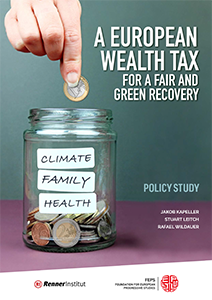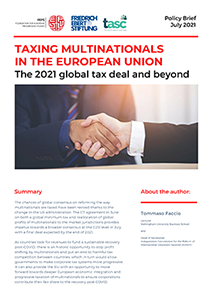Taxation
Project
Progressives have long advocated for far-reaching tax reforms able to deliver on fiscal justice. Nowadays, reforms become even more crucial as member states need resources to drive the green and digital twin transitions and secure a prompt recovery.
The negotiations at the G20 level, based on the OECD proposals, represent a possible big change in the rules of the game and have the potential to completely reshape how corporate tax works. However, there are many other aspects of interest as well.
FEPS is active on multiple fronts of tax policy, from sustainable taxes to wealth taxation, from EU own resources to the FTT. The analyses and discussions led by FEPS should be useful to identify avenues for European integration on this important matter and propose policy solutions that modernise the European taxation system.
Publications
A European Formula for Global Tax Reform | Policy Study
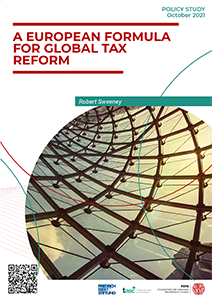 Global tax reform is a politically fraught process, not only in the EU but also globally. The current corporate tax system, which assumes that each entity within a multinational group is a separate firm, creates significant imbalances among EU member states as well as among developing countries.
Global tax reform is a politically fraught process, not only in the EU but also globally. The current corporate tax system, which assumes that each entity within a multinational group is a separate firm, creates significant imbalances among EU member states as well as among developing countries.
Political momentum has built up to replace the current regime with a system known as formula apportionment, which treats the profits of multinationals in a unified way and then allocates those profits to jurisdictions on the basis of a formula.
On top of this, the introduction of a global minimum tax rate to curb the so-called race to the bottom is also under discussion.
This Policy Study by Robert Sweeney, published in partnership with the Friedrich Ebert Stiftung and TASC, examines the opportunity for the reform of international corporate taxation by implementing a formula apportionment approach to taxing rights.
A European wealth tax for a fair and green recovery | Policy Study
The European Union faces the twin crises of Covid-19 and climate change. Confronting both crises requires an unprecedented volume of public resources. The question of how to raise these funds without jeopardising a weak COVID recovery while doing so in a fair way without undermining broad political support for climate action poses a major political and economic challenge.
Jakob Kapeller, Stuart Leitch and Rafael Wildauer investigate the potential of a European net wealth tax to raise substantial revenues while supporting the economy and the consensus on climate action. To achieve this, household survey data from the European Central Bank (covering 22 EU countries) are analysed.
Taxing Multinationals in the European Union | Policy Brief
The chances of global consensus on reforming the way multinationals are taxed have been revived thanks to the change in the US administration. The G7 agreement in June 2021 on both a global minimum tax and reallocation of global profits of multinationals to the market jurisdictions provides impetus towards a broader consensus at the G20 level in July, with a final deal expected by the end of 2021.
This policy brief by Tommaso Faccio, in partnership with Friedrich Ebert Stiftung and TASC, looks at the ongoing international tax negotiations and the opportunity that a 2021 global agreement would bring to the European Union to play a leadership role in the modernisation of global business tax rules.
A Common Withholding Tax for the EU | Policy Brief
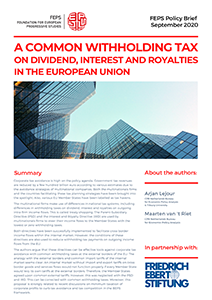 The multinational firms make use of differences in national tax systems, including differences in withholding taxes on dividend, interest and royalties on outgoing intra-firm income flows. This is called treaty shopping. The Parent-Subsidiary Directive (PSD) and the Interest and Royalty Directive (IRD) are used by multinationals firms to steer their income flows to the Member States with the lowest or zero withholding taxes.
The multinational firms make use of differences in national tax systems, including differences in withholding taxes on dividend, interest and royalties on outgoing intra-firm income flows. This is called treaty shopping. The Parent-Subsidiary Directive (PSD) and the Interest and Royalty Directive (IRD) are used by multinationals firms to steer their income flows to the Member States with the lowest or zero withholding taxes.
Both directives have been successfully implemented to facilitate cross border income flows within the internal market. However, the conditions of these directives are also used to reduce withholding tax payments on outgoing income flows from the EU.
In this Policy Brief, Arjan Lejour and Maarten van 't Riet argue that these directives can be effective tools against corporate tax avoidance with common withholding taxes at the external borders of the EU.
In the media
- EURACTIV: How rich countries profit from the OECD tax deal. Interview with Robert Sweeney, author of the FEPS-FES Policy Study "A European formula for global tax reform"
- EURACTIV: International taxation and green public investments. Special report following the FEPS event on taxation and fiscal rules.
Videos
Events
Taxation and Investment Conference | Ahead of the G20 Summit, which may reshape the way in which corporate tax works, and ahead of the new European Semester cycle, that embeds the Recovery and Resilience Facility, we made a point on these crucial crossroads that have the potential to redesign the European approach to public finances for the next decade.
New Resources for the EU Green Deal | Watch the 2nd Episode of the Policy Breakfast Series "Financing the EU Green Deal"
Day of Progressive Economic Policy 2021 | Paolo Gentiloni, EU Commissioner for Economy, European Commission, and Joseph E. Stiglitz, Nobel Laureate and Professor at Columbia University participated in the special session “Visions for the recovery and progressive taxation for a post-COVID world”
Related Resources
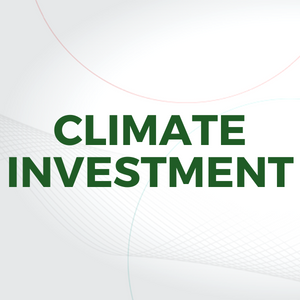
|
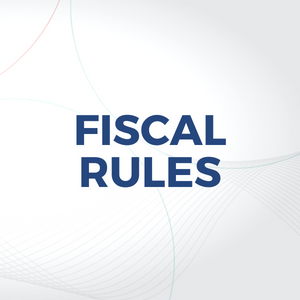
|


